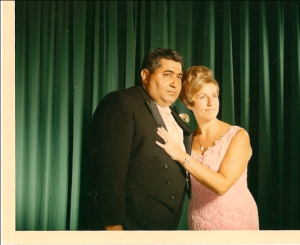Cherrye S. Vasquez's Blog, page 5
January 24, 2014
Don’t Get My Message “Twisted” – Religious Bullying & Gay Rights: Who is Their Judge? Not YOU!!
A few months ago, I posted a video on my website titled, “Religious Bullying & Gay Rights: Who is Their Judge? Not YOU!!” The video can be found at this link: http://youtu.be/uq_i8ArdeG8
I knew I’d get feedback from this article, but I didn’t know to what extent. I want all to realize that I appreciate comments and matters of personal opinion, but it is important for my words not to be taken out of context.
Today, I stumbled upon the below comment from a visitor (I bolded their words to distinguish them from my own):
“Nobody is judging homos but condemn their sinful behavior. this is the reason why God said for women to stay quiet, stop deciding issues based on emotion but brain. Actually it’s a right by God for true Christians to judge (John 7:24). For u everything is bullying, showing to homos their behavior is not acceptable is not bullying but making sure humans stay rational & protect morality. MORALITY BEFORE HUMANS. Diversity? Small nose big nose, yes: sexuality is 1 (hetero) the rest are perversion”
Please note my thoughts and similar response back to the commenter:
“I knew when I posted this video someone would get my message “twisted.” The main focus of this message isn’t about whether being gay is right or wrong. This message is about WHO gives us the right to BULLY another as per their choice to be gay. According to our religious practices/beliefs, we must all decipher this ourselves, and make ourselves ready to follow HIS word. Okay, we know this – But if YOU and I are honest, we also know that we have sinned as well. In the eyes of God there are no little sins, or big sins. Sin is sin! – If one wants to go there.
We can go back and forth spouting off biblical scriptures all day long, but according to my bible: Romans 3:23 – For all have sinned, and come short of the glory of God.
The word “all” includes YOU and ME. My bible also reads: John 8:7 … He that is without sin among you, let him cast a stone at her. You may want to go there to get the full gist of that story.
I never intended to give a bible lesson here, but I think my point has been made clear.
Again, whether you believe being gay is right or wrong is not the main point here. Whatsoever our personal/religious beliefs are – We have NO right to BULLY another person based on their sexual preference. To use religion as a tool to do so is termed “religious bullying.” I might add: To do so seemingly contradicts how God wants us to treat one another. If we need to admonish another, why not do so in the spirit of LOVE and NOT HATE, but we must get our own “house in order.” Consider this scripture: Matthew 7:3. We can also learn something from these words. Feel free to go there and read what the bible says.
Now, think about your own sins (yes we all have sinned/sins). Oh, don’t stop there – Think a bit longer on the one(s) that you never wanted anyone to find out about, or the one(s) someone did find out that continues to plague and/or shame you. Question: Would YOU want a person who identifies him/herself as gay to BULLY YOU? How would you feel? Would you relish in the continuous taunting, teasing, and physical abuse? Think about it. I certainly wouldn’t want a gay person to gather up all of my sins and then BULLY me. I doubt any of you would either. Think on these things.
Author Motto: Love is the key to diversity!
Note: Anyone reading this post who’d like to comment on my blog, please feel free to do so. I’d appreciate your perspective on this topic.
Cherrye S. Vasquez, Ph.D.
Please look for my new bully book, “Teacher, Teacher Can’t You See?” coming soon.
January 18, 2014
Play Ground Politics
 School Dodgeball Ban: New Hampshire District Stops ‘Human Target’ Sports, Citing Bullying.
School Dodgeball Ban: New Hampshire District Stops ‘Human Target’ Sports, Citing Bullying.
Students attending Windham schools in New Hampshire won’t be dodging balls during gym class anymore. The school district voted to ban dodgeball and other “human target” sports in a recent 4-1 decision, according to multiple sources.
“We spend a lot of time making sure our kids are violence free,” Windham Superintendent Henry LaBranche told the Eagle-Tribune. “Here we have games where we use children as targets. That seems to be counter to what we are trying to accomplish with our anti-bullying campaign.”
As adults we spend a great deal of time to ensure the safety of our children and of course take all the steps necessary to help them cope and deal with the bullying behavior in schools, and in their community. But let’s take a look at what is really happening here, and why we have to help our children develop greater resiliency and learn how to compete and develop stronger pro social skills through something that I call play ground politics.
As a young boy on any given summer day I would leave my house early in the morning with a bat, a ball and a glove and would play baseball until the sun went down. No supervision, just a gang of guys playing ball together. We had a couple of bucks in our pocket, for a soda and a hot dog, took breaks, welcomed other kids who wanted to play, worked on our skills, set up our own rules, and in general had a great time. Did we all get along? Of course not. Were there bullies amongst us? You bet. Did we experience at times some fear and intimidation because of these bullies? We did. But, everyone stayed and played, we solved our own problems, we learned how to get along, and discovered a healthy pecking order on the field. What we learned on that field were lessons that lasted a lifetime. We all knew how to play the game of playground politics. I am not a proponent of bullying, nor do I believe that bullying is some sort of right of passage. I do believe that bullying is on the rise in part because of the inability of our kids today to develop greater emotional resiliency and solve interpersonal problems on their own. One of the goals of any anti bullying program should be to strengthen the victim and provide them with the pro social skills necessary to function in an adult world. The superintendent of the Wyndham school district in New Hampshire wants to be sure that kids are violence free. I agree. But let’s work on the displaced anger of parents who are at a loss themselves when it comes down to teaching their kids interpersonal skills and in that effort really take a stand by helping to eliminate the absolute dysfunction that plagues our schools. Competition is healthy and kids need to learn how to compete in a healthy way. They learn from competition. Banning dodge ball is only the beginning. There are plenty of sports that could be viewed as exclusive and potentially violent. Football, hockey, lacrosse, even soccer can involve body contact. Sports do involve exclusion, or at least they are supposed to because someone has to win and someone has to lose.
Let’s take a look at what kids could learn by properly playing the game of playground politics and how it can benefit them as they move into adult life.
Life is not Win-Win – My daughter Grace was and still is involved with a traveling soccer team. Several years ago at the conclusion of the season she and all of the other team members received a trophy at an end of the season party. Grace never missed practice, went to all of the games, and to boot she was the MVP of the team. She received an additional trophy because of this accomplishment. On the way home in the car Grace said to me; “Dad you know that about half of the team missed practices, didn’t go to some games, and really never gave their best efforts when they played. How do they deserve a trophy?” Well, how do they deserve a trophy? I don’t really know. I do know this though: everyone is not a winner. If that were the case we wouldn’t have a Super Bowl, World Series, or political elections. The game of playground politics needs to reinforce the fact that there are those that are bigger, better, smarter, and stronger and recognize those kids for the skills that they have and not put them on the same level ground as everyone else. Because the ground is truly not level. As a young boy myself, I knew that I didn’t have the same skills in baseball as some of my teammates, I still respected their skill. The good feelings came because I worked, and practiced, and put forth my best effort. Did the team always win? Of course not. We lost a lot. Watching the movie Moneyball really hit home with me. Billy Beane the general manager of the Oakland Athletics put together a baseball team that in 2002 won twenty consecutive games. They went to the playoffs and lost in the first round. His heart and soul was in constructing a team on a shoe string budget, and he did. But in the final analysis he is still trying to win the last game of the season, which would make the Oakland Athletics the World Series Champs. Everybody doesn’t win. There are winners and there are losers. Losers lose for a variety of reasons, and they have to accept the lose as part of life.
Competition is a Good Thing At Any Age – As adults we compete all the time for promotions, academic recognition, and at times status. It is part of life. Kids need to know how to compete in the real world as soon as they enter the game of playground politics. Our society wants to eliminate games like dodge ball, tag, and even spelling bees because of the belief that it promotes exclusion and we don’t want kids to feel bad. Well, by eliminating competition kids will begin to feel good about themselves for no apparent reason. They will develop an entitlement mentality and believe that the world revolves around them. They will not have a clear understanding of their own limitations and will begin to see competition as a threat to who they are as a person. Several years ago a school district in northern New Jersey faced a dilemma. Six students had grade point averages that were so close that they couldn’t decide who the valedictorian of the high school was going to be.
The simple use of a calculator could have helped determine who it was going to be. But because of the fear of parental complaints and law suits, you guessed it all six students were named valedictorian. The parents and the students feared the competition and believed again that we all win.
Playground Politics Teaches Respect For Someone Else’s Ability – Some kids can run faster, jump higher, and are just genetically better athletes and at times better students. Kids know on the playground that if the kid that was “IT” in the game of tag was the fastest running kid in the school that he wasn’t going to be “IT” for very long. His speed was respected. The last thing we want to see is the best hitter on the baseball team coming to bat with the bases loaded. Kids need to learn how to be respectful and at times admire those with greater ability then they have. By admiring I don’t mean to feel inferior to someone, but just to recognize it as something that is unique to him. Kids can become fearful and at times angry when they enter into competition with someone who has greater athletic or academic skills then they have. The schools then eliminate competition because they don’t want to affect the self esteem of the child. This does nothing more then to prepare him for a life of jealously and envy as they grow older and only wishing that they were someone else.
Playground Politics Teaches Kid How To Make Friends – Kid want and need friends, but knowing how to pick friends is a troublesome job for some. Games like basketball, football, and other sports teach kids a sense of team play. I am not talking here about sports that kids play in an organized way as part of a traveling league or as part of a high school team. I am talking about the games they play by themselves as part of recess during the school day. Most kids today have not been taught how to organize themselves, pick teams, and get a game going. Putting together a pick up game helps kids make friends; friends with similar abilities who they can play and compete with on a reasonable level and offer encouragement to one another. I hate to say it, but once parents and coaches get involved in organizing kids the sense of fun and friendship seems to be taken out of the sport and the kids seem to suffer the frustration, anxiety, and tension of the competition which is imposed upon them by a coach. That is not what competition is about; it’s about camaraderie, encouragement, and a love for the sport they are playing.
The Playground Teaches Balance and Academic Consistency – In almost every state today kids have to pass a standardized test that determines their placement for the next school year. Not to mention the state funding that the district gets if all kids do well. School have been trained that teachers have to teach to the test so when the springtime comes and the test is administered all students will have the requisite academic skills in order to pass. All fall and winter kids are subject to what I call drill and kill. Less and less time gets spent moving around and more and more time is spent in a seat. Recesses are shorter and student behavior has gotten worse. The kids get out of balance and suffer from what I call a scarcity mentality. What this means is that time for movement is scarce so the student has to figure out a way to steal it during class time. Gone are the days when if a student finished his/her work they could go outside and play a game of kickball. Now, when the work gets done what the student has to look forward to is, you guessed it more work. An abundant mentality teaches that at some point I will be able to move and play, so by completing the work in a timely fashion I will have that opportunity. Students develop greater academic consistency and success by being given the time to be involved with free play.
Coaching Is Not Just About Sports – If we want our kids to develop pro social skills we have to coach them through the game of life one step at a time. We have to teach them how to be graceful losers, develop friendship skills, how to compete in a respectful and responsible manner, and how to solve interpersonal problems where space is allowed for productive conflict. This will not happen over night. The bullying epidemic which society faces today is a direct result of exclusion. Too many things have been excluded from our schools that helps teach kids how to get along and develop the necessary confidence and resiliency to face their fears and understand how to function as part of a class, a group, or a team. This problem is beyond the dodgeball story cited at the beginning of this article. The Wyndham school district was just reacting possibly to one parental complaint. Dodgeball only gave those who were bullies a chance to act out. Discipline the bully then and let the rest of the kids have fun.
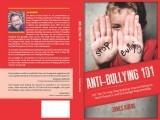 James Burns is a popular speaker on the topic of Anti Bullying and the co-designer of the RTC Online and face2face course: The Bully Proof Classroom. You can also catch Jim on BlogTalk Radio @ http://www.blogtalkradio.com/bullyproofclassroom where he can be heard discussing bullying issues on a regular basis. Check in on Mondays for the “Anti Bullying Tip.” Jim is a popular instructor with the Regional Training Center as well. Besides teaching the course he co-designed, “The Bully Proof Classroom,” he also teaches “Cooperative Discipline,” “Skills and Strategies for Inclusion and Disability Awareness,” and “Brain-Based Teaching and Learning.” His newest book Anti-Bullying 101 is available from Amazon.com.
James Burns is a popular speaker on the topic of Anti Bullying and the co-designer of the RTC Online and face2face course: The Bully Proof Classroom. You can also catch Jim on BlogTalk Radio @ http://www.blogtalkradio.com/bullyproofclassroom where he can be heard discussing bullying issues on a regular basis. Check in on Mondays for the “Anti Bullying Tip.” Jim is a popular instructor with the Regional Training Center as well. Besides teaching the course he co-designed, “The Bully Proof Classroom,” he also teaches “Cooperative Discipline,” “Skills and Strategies for Inclusion and Disability Awareness,” and “Brain-Based Teaching and Learning.” His newest book Anti-Bullying 101 is available from Amazon.com.
January 1, 2014
Chicken Soup
(First posted on The Write Room Blog) – http://www.thewriteroomblog.com/?p=1149
[image error] “What a pain in the ass.” Trudy put her iPhone back into her pocketbook.
It wasn’t much of an expletive or very loud, but coming from the lips of my wife it was enough to make me look up from my snack, a piece of Trudy’s latest chocolate-pecan pie, and ask, “What is, Dear?”
“Not what, who. It’s Iris…Again…now she wants me to make her some chicken soup.”
“She asked you to make her chicken soup? I know she hasn’t been feeling—“
“No, she asked me how to make chicken soup; but if I know Iris, she’s hoping I’ll make it for her.”
“Does that woman think you’re her mother?” I asked as I slipped my plate into the sink and splashed it with water.
“That girl certainly needs a mother, but I’m not applying for the job.”
“So what are you going to do?” I asked.
I was heading into my study with my teacup still in hand. I do love to sip my tea, and the latest batch of Earl Grey was particularly good. I had sent to San Francisco for a half pound only that month and had already made a significant dent in the tin.
“What am I going to do? Nothing…nothing for now. I’ll get back to her this afternoon. Maybe if I let her simmer, she’ll get the idea and do it for herself.”
Later that day, when I was poking about in the refrigerator looking for some delicious meatloaf leftover from two days before, I noticed Trudy texting. “Who is it?” I asked.
“I can’t hear you when your head is in the refrigerator,” Trudy responded.
Well, the door being open and a couple of containers already on the counter, I didn’t say anything more until I had the meatloaf in hand.
“Who?” I asked when, having piled the other containers back into the cold, I stood at the counter taking two pieces of bread from the new loaf. “Who, correction, whom were you texting?” Before she could answer, I remarked, “Damn, I forgot the mayonnaise.”
I was about to plunge back into the refrigerator looking for it, but Trudy reminded me, “Bottom shelf in the door, right side.”
How she does that I don’t know, but Trudy always knows where things are.
“Iris,” she said. “I told her to buy a chicken…and some vegetables.”
“Vegetables? That sounds a bit too general for Iris.”
I’d barely gotten the words out then there was the sound of clinking glasses. Why Trudy chose that tone for her texts I have no idea, but each time she gets one I look around for the champagne and the strawberries. Two things I love to eat with champagne: strawberries and caviar. Sadly, it’s getting terribly hard to find good caviar.
Trudy, meanwhile, had read the new text and was laughing.
“What?” I asked, always ready for a joke.
“She wants to know what kind of chicken.”
“Tell her a live one,” I offered and received a sneer in response.
“Don’t be silly; she really doesn’t know anything.”
Trudy pecked away at the tiny letters on the iPhone screen. We’re too old for thumbing, still thinking typewriter. Well, at least the keyboard’s the same.
“So?” I didn’t really want to know anything, but I hate it when Trudy dismisses me.
“I told her to buy thighs, with the skin and bones.”
“Oh.” I slathered mayo onto the bread and dropped the knife among the dirty dishes in the sink.
There was another clink, which reminded me. I opened a cabinet and pulled out a bottle of Coke.
“You haven’t fini—” Too late, Trudy didn’t get to tell me there was a half full bottle. Oh well, I’d get back to it. I poured a class and pushed that bottle into the fridge. Crescents of ice fell into my glass splashing the soda. I licked it off the web between my thumb and forefinger.
“You were right,” my wife commented.
“That’s always good.”
“She didn’t know which vegetables.”
I laughed, smug in my superiority.
It wasn’t until the next morning that Iris texted again. “I’m going to the grocery store.”
“I guess she finally gave up,” Trudy observed.
“Gave up?”
“She’s figured out that I’m not on the way with a pot of soup.”
“You don’t—?”
“Yep. I’m sure she was hoping.”
Trudy quickly sent off a text.
“What was that?”
“I told her to get a box of chicken stock. I figure if she’s going to try to make it, it should be edible. You don’t want Gary to suffer.”
“Oh, he’ll slip it to the dogs,” I answered.
“That would be worse.”
The thought of dogs gagging distracted me enough that my English muffin got too brown. I hate when that happens, having to throw it out and start over. “Could you make this for me?” I asked. “I’m just not with it today.”
Trudy had already plunged her hands into the sink and was washing assorted dishes and cups. She dried them carefully on a dishtowel and took the package of muffins. “What do you want on it?”
“Butter.”
“Okay.”
“And maybe some jam.”
“What kind of jam.”
“I don’t know; you pick.”
“Fine, I’ll have if for you in a minute or two.”
I left the kitchen, turned back, and said, “Strawberry. Yeah, strawberry.”
“Fine.”
“You know what?”
“What?”
“Another cup of tea.”
“Fine. Where’s your cup?”
“My cup?”
“Yeah, didn’t you already have some tea this morning.”
“Right. I put that cup in the sink.”
This time her “Fine,” didn’t sound so fine. Still, I did have to say it, didn’t I? “Could you make some of that new fig tea, you know what I mean?”
I didn’t feel so bad about dirtying another cup. After all, who would mix Irish breakfast tea and figgy tea? Figgy pudding maybe. Yeah, that would be good.
Another text from Iris: “What do I do now?”
Clearly, Trudy was going to have to walk Iris through the cooking process.
“She’s so needy; I feel sorry for her,” my wife answered when I asked why she was bothering. Meanwhile Trudy was texting away,
Clink.
Text.
Clink.
Text.
“I’m not sure she understands simmer.”
Text, text, text.
“Can’t she Google it?”
“Google isn’t as patient as me.”
Clink.
“Now what?” I asked, my words somewhat distorted by the lamb chop I was devouring. I will admit that I’m a bit strange in some of my eating habits. One is liking cold lamb, well not really cold but room temperature, just a chop or two from the leftovers zapped for a few seconds to take the chill off. Great snack. Although late at night I add a Zantac.
It being mid-afternoon, I had ignored the possible indigestion and walked about the living room a chop in each hand.
Trudy didn’t answer me. She was working too furiously at the next message. Finally, she hit send.
“She started talking seasoning.”
“Oh, God,” I moaned at the thought. We’d eaten Iris’s cooking—once and that had been enough. “Let me guess, paprika.”
“That was just the beginning. Would you believe cinnamon?”
“From Iris? Yeah.”
“Chili powder?”
“Ouch.”
I took another generous bite of chop.
“What did you tell her?” I asked. There was still some meat in my mouth. A small piece flew onto the floor. Since I didn’t have a free hand, I made a mental note to pick it up later.
“I told her to use some salt, a little pepper, and maybe some parsley at the end. You know, to keep it simple.”
“K.I.S.S.”
“No, I didn’t call her stupid.”
The next ping came some time later. That was a nuisance. Trudy was buttering sheets of phyllo dough for a tray of baklava. The nuts—walnuts and pistachios are my favorites—were chopped and waiting in a bowl, from which I occasionally dipped, but only a pinch at a time.
Trudy washed her hands, and read Iris’s text. I, in a bit of pique, took a handful of nuts to tide me over.
“I had to explain how to separate the liquid from the solid stuff. She has to pull the meat off the bones before she puts it back together.”
A quick glance in my direction, another into the now partly emptied bowl, and Trudy went to the cupboard. “I guess I’ll have to chop some more nuts.” She pulled out a bag of almonds. “These will have to do,” she muttered. She dumped the almonds into a plastic bag, made sure it was closed, took a hammer from a drawer and pounded them into submissive smithereens.
I don’t really like almonds, but I could hardly expect my wife to run to the store for more walnuts and pistachios, not if I wanted baklava for dessert.
Before my dessert was ready to pop into the oven, there was another clink. Iris again. What to do next?
I assuaged myself with a few Chinese spareribs. I keep Chinese food on hand for moments of desperation. If I eat it cold, it doesn’t get in the way of my appetite, doesn’t interfere with a good dinner.
“Skim the fat from the liquid with a spoon,” Trudy texted and went back to buttering phyllo dough. Almost immediately Trudy’s phone rang. It was Iris, doing the unthinkable, actually calling.
“What liquid,” I heard her scream over the phone.
Iris had tried to follow my wife’s instructions. How was she to know that when she strained off the liquid from the pot there was supposed to be a bowl or another pot under the colander? I mean, Trudy hadn’t told her to save the soup part of the soup. How was a neophyte to know?
I watched Trudy grimace as she fought off the giggles that were already convulsing me.
Grabbing the phone from my wife’s hand, I mouthed, “I’ll take care of this.”
More loudly, “Iris, honey, put Gary on.” I was taking charge.
“Hey,” came Gary’s voice through the ether.
“Hey, Gar! It’s time for us men to step up. What do say we take the little ladies out for dinner?”
“What did you have in mind?” he asked.
“A steak’s always good with me; how about you?”
I hung up with the satisfaction of having done the manly thing. That deserved a reward, and I knew there was a piece of Stilton with my name on it.
I grabbed a dishtowel to wipe the red Chinese stuff off my hands and face and handed it to Trudy. “Got some on your phone,” I commented as I headed for that cheese.
“Oh, Hon,” I said, “Could you grab me some crackers? The whole wheat ones. They’re healthier.”
About the Author
Ken Weene sees life as very much a laughing matter. You can find more of his writing at http://www.kennethweene.com
December 21, 2013
The Gift and The Curse
 No. I am not psychic. I’m mixed.
No. I am not psychic. I’m mixed.
And you probably are too. Although you may not want to talk about how you became multicultural, multilingual, or multiracial; the fact is, given the mixed history of America, you probably are.
So whether you self-identify as biracial, multiracial, multicultural, mixed race, splendid or blended, you may have, at one time or another, felt that being mixed was a gift and a curse.
Let’s start with the curse.
The curse is being asked, every day in some way, to pick a side: To choose blackness over whiteness when filling out a form; to join a conversation concerning “those people” and not offer your perspective for fear of exclusion from this group because what would you do if they knew that you were one of “them?”
The curse is being asked, “What are you?” by strangers as they reach out to touch your hair with one hand while grasping their pocket book tighter with the other.
“Clichés” you say? Not in my world. Every single day of my life, someone somewhere is asking me to choose. It may not be a verbalized command but the demand, nevertheless, exists.
“You’re too sensitive!” Really?
Let’s start from the beginning.
I was raised in all white Hungarian household without access to or knowledge of my parent of color until I was 26 years old. My family was white. My school mates were white. For all intents and purposes, I led a very white life. Yet, everyone in my neighborhood was demanding that I claim the color in my skin. So I learned and spoke Spanish to please my Puerto Rican friends. I listened and danced to Black music because that’s what my Black girlfriends were doing. I even tried speaking slang when white adults made fun of the “proper” way that I spoke.
None of it worked. It was never good enough.
I was never good enough. Rather, I was never white enough for white people and never black enough for Black people. My identity was shaped by a mentality of lack for most of my life. Forget the fact that I didn’t have a father figure. I didn’t have anyone who looked like me or understood my precarious situation either. To date, I don’t know what’s worse.
Thus the curse!
And now the gift…
Once I was told of my biracial heritage, I have spent every day since on an adventure, learning what it means, for me, to be mixed race. Blackness, just like whiteness, isn’t something that you just inherit. A magic fairy doesn’t just wave her magic wand and poof……you wake up knowing how to be Black or how to be white.
No, every day, mixed people have to find a way to live life on their terms. We have to learn to shake off the constant demands from strangers and family members who assume that our outer shell matches the soft, gooey, core mixed with a sprinkle of this and a dash of that.
For me, the gift is being able to relate and connect with people who understand what it means to be marginalized, categorized and told how to feel and act based on the collection of random numbers.
We are born multiculturalists, fluent in whiteness and ______________________ (insert your “otherness” here) and this is a skill that transcends boardrooms, classrooms, and pulpits.
So whether you are: Mixed OR a parent raising multiracial children OR an educator impacting a multicultural classroom, I challenge you to try on a new perspective. I challenge you to tell your story as if you were blessed with a gift instead of a curse.
Start a conversation and find a way to encourage a dialogue that celebrates the similarities instead of the differences.
This has been my journey, from childhood to adulthood. With the knowledge of my cultural heritage, I have made a choice to try on new identities and learn for myself what it means to be white and Black. No longer will I allow others to define me.
The Gift and The Curse
I’m Mixed Silly, not Psychic!
About the Author:
Founder/CEO of Life Coaching with Tiffany Rae Life Coach,
Mentor & Host of Mixed Race Radio
201-450-3210
www.tiffanyraecoaching.com
 “Color Blind-A Mixed Girl’s Perspective on Biracial Life”
“Color Blind-A Mixed Girl’s Perspective on Biracial Life”
A Guide for Parents, Caregivers and Family Members Raising Biracial Children-Color Blind is Tiffany Rae Reid’s Story of Growing Up Biracial. Within its pages, Tiffany Rae exposes the situations and relationships that helped and hurt her as she struggled to develop a racial identity that was more a part of her than a part of the world around her. Color Blind Provides Insight, Suggestions and Options for Biracial Individuals and for the Parents, Caregivers, Family Members and Educators Raising or Impacting the Lives of Biracial Children.
http://amzn.to/JLoSrd
December 13, 2013
Stigma
 Many people with mental illness feel lonely and isolated. Their journey through life can be filled with adversity and mental turmoil. For others, their symptoms are more easily dealt with through medications and/or therapy, and they have a very good quality of life. It all depends upon the individual. One thing they have in common though, is the stigma surrounding mental illness.
Many people with mental illness feel lonely and isolated. Their journey through life can be filled with adversity and mental turmoil. For others, their symptoms are more easily dealt with through medications and/or therapy, and they have a very good quality of life. It all depends upon the individual. One thing they have in common though, is the stigma surrounding mental illness.
Stigma against people with mental illness hurts them. It can make them worse. It can even make people take their own lives. It is essentially a form of bullying based upon a person’s ignorance or lack of understanding and empathy.
Mentally ill people should not feel ashamed of themselves or their illness any more than anyone else with a physical illness. DON’T do it! Don’t stigmatise. And if you hear of someone stigmatising, try to educate them – please.
The kindest thing you can do for anyone with mental illness is try to understand the person’s illness. Try to create empathy for that person. It’s not about sympathy; it’s about empathy – really trying to understand things from the other’s point of view. I have written articles on my website about how you can help stop stigma if you’d like to take a look sometime.
There is one big thing you can do if you have a mental illness… Share your story to help others’ understanding of mental illness.
Social networking and personal blogs are a valid addition to the world of mental illness and mental health. Not only do professionals share their knowledge, but sufferers and families of sufferers are sharing more and more the stories of their journeys through mental illness. This not only brings the subject out in the open more, it helps people understand this often misunderstood area of illnesses.
Although there are symptom lists for each condition, people are different, and when it comes to the brain, it depends on a person’s base personality make-up, to start with, as to how a mental illness will affect them. Of course, this is not always the case, but quite prevalent with personality disorders, as I know myself, having been previously diagnosed with Borderline Personality Disorder (BPD).
So, if mental illness can be portrayed via many varied symptoms by each individual it can make research and understanding by those not affected and viewing the illness from the outside very difficult. This is also true of the sufferer who can be unaware of their symptoms.
However, symptoms are not the subject of this post – stories and stigma are.
The subject of stigma is one which, thankfully, many people are now fighting. Mental health charities, advocates and many individuals are campaigning to stop others’ negative attitudes to mental illness. They do this knowingly. However, sometimes unknowingly, some individuals help reduce stigma by way of writing on their personal blogs, or social networks, and I applaud them. Just by sharing our stories of mental illness, we help tackle the stigma that surrounds the subject.
I am very passionate about the campaign to fight stigma, so I wrote my first memoir ‘My Alien Self: My Journey Back to Me’ showing how my mental illness progressed from childhood, what it felt like to be ill, and my journey to getting better, but I also focussed on explaining stigma on the pages as well. I also share articles and personal experiences on my website/blog, on social networks Face book and Twitter and by sending stories to magazines, mental health charities and organizations. I then wrote my second memoir called ’39 (memoirs of Amanda Green)’ as a follow-up of my progress and life’s mini adventures.
Some of these mental health sites have huge audiences and are very powerful in their messages about mental health.
So far, I have had parts of my story published on:
So, I encourage all of my lovely website visitors who read this, to share – knowledge is power and sharing really does help reduce stigma – do something today!
****************
In February 2012 I joined Twitter and shortly after, facebook. I was finishing the editing of my memoir at the time, and I wanted three things from Twitter.
Firstly, I wanted to be able to show my book to people who I thought would benefit from it (because I self-published I don’t have traditional/mainstream, or agents helping with publicity).
Secondly, I was in awe of the idea that I could connect with people or organizations who could enhance my knowledge in the fields of mental illness, stigma or orang-utan campaigns. How wonderful to be able to select news of my own choice – to follow or not to follow – just as I wanted.
Thirdly, I could campaign freely, to an interested audience (my followers) about mental illness stigma or Orang-utan/unsustainable palm oil production issues – two subjects close to my heart.
And, as a bonus, I had an inkling inside that I might be able to show some support to others in need, and share my experiences, and wisdom while offering positive inspirational messages to those experiencing mental illness.
I have suffered during my life, with Borderline Personality Disorder, Depression, OCD and anxiety issues. I have written my life story in the hope that my recovery at the end would help other sufferers see there is hope, there are ways to feel better, and that suicide or self-harm is not the answer in the sometimes out of control, confusing or black moments in life.
I got through my journey on my own, without social networks or forums. Mainly, I didn’t want to talk to anyone else about my problems, I wanted to work on them myself, but also because I didn’t want my undesirable personality traits being played out to people I have never met. I couldn’t trust myself is basically what I am saying. I was confused, angry, upset, depressed – far too unstable for guaranteeing ‘social’ relationships.
I fight for the eradication of stigma, so I will not sit quiet and watch. I am the type of passionate person who will do, or say something on behalf of mentally ill people who cannot speak for themselves – I am an advocate. I can do that now since sharing my own stories, because I decided enough is enough and went to my local newspapers and women’s magazines to get my story out there.
To protect my mum and family, since I wanted to write my book with ‘everything’ in it, including details about my family and their behaviours, I now use a pseudonym, and that is due also to stigma – something my mum has experienced a lot of, and I did not want her to experience anymore as a result of writing my life story.
****************
Both books are for ADULTS ONLY
Blog - www.amandagreenauthor.co.uk
Buy ’My Alien Self’ on Amazon www.viewBook.at/MyAlienSelf
Buy ’39′ on Amazon www.viewBook.at/39
Twitter - @AmandaGreenUK
Facebook – AmandaGreenAuthor
Goodreads – http://www.goodreads.com/book/show/15840188-my-alien-self
Facebook book page – http://www.facebook.com/pages/Amanda-Green-My-Alien-Self-my-journey-back-to-me/268350159908283?fref=ts
"No Tildes on Tuesday" & "Clique, Clique, Stop" book Giveaways!
If you are interested, I've placed my two children's chapter books, "No Tildes on Tuesday" and "Clique, Clique, Stop" in Goodreads Giveaways.
If you, your friends, family or colleagues are interested, please enter the giveaway and learn more about these books. I am giving away 2 books from each title.
Please enter before January 9th.
Should you have questions or concerns, do not hesitate to contact me.
Thank you for your continued support!
Cherrye S. Vasquez, Ph.D.
November 8, 2013
MAMA COULD MOVE MOUNTAINS
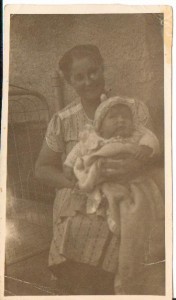 Josephine Buttaci was my mother. On September 18, 2010, at 96 years old, she passed away, much to the sorrow of all who knew and loved her. As a Christian who believes in the promises of Christ, I have faith that one day I will see her again in an eternal Heaven where tears of pain and separation do not exist.
Josephine Buttaci was my mother. On September 18, 2010, at 96 years old, she passed away, much to the sorrow of all who knew and loved her. As a Christian who believes in the promises of Christ, I have faith that one day I will see her again in an eternal Heaven where tears of pain and separation do not exist.
MAMA COULD MOVE MOUNTAINS
Father Norman Werling asked us to bring to class two handwriting samples from two people we knew well enough to agree or disagree with his graphological analyses. A world-renowned expert in both penmanship and questioned document examination, Father Werling taught Psychology of Handwriting courses at Felician College in Lodi, New Jersey. He believed that one’s handwriting revealed quite a bit about a person’s temperament.
One of the handwriting samples I brought to class the following evening was my mother’s. Born in New York City in 1913, she was only three months old when her mother developed serious health issues in America that led her doctor to suggest she return with her children to Sicily. My grandfather, who worked as a butler in one of the Madison Avenue mansions back then, remained in America before reuniting with his family seven years later.
An American citizen, Mama attended schools in her Sicilian mountain village of Acquaviva Platani. She had learned to write according to the penmanship rules there, so when Father Werling asked where the person of this writing sample (my mother) first attended school, I told him Sicily. At eighteen she had married my father, a naturalized American citizen from the same Sicilian town, and together they left Sicily to leave once again in New York.
“This person has a very strong temperament,” began Father Werling. My eyebrows lifted. My mother? A strong temperament? He may have been famous for analyzing handwritings, but I was convinced he completely missed with this one. The only thing I considered by way of strength that my mother possessed was a strong introversion! She did not feel comfortable with people she did not know and never tried to place herself at the center of anyone’s rapt attention. Mama was quiet-spoken, not very healthy, and certainly overshadowed by my father who seemed to be all the things she was not.
“Looking at these lower loops, particularly the way the writer has them return forcefully to the middle zone,” Father Werling was saying. “this person knows what is important and will do all things possible to keep on track.”
As he pointed to each letter’s formation, the size of the four borders, the slant of Mama’s writing, the pressure of her pen strokes, Father Werling would provide some new revelation about her that seemed to me so far-fetched as to have me ask in the middle of his analysis, “Are you sure, Father, you’re seeing all this in my mother’s handwriting?”
He smiled. “Sometimes we know little about the people who love us, the people we love. We paint our own pictures of them in our minds and tell ourselves, ‘This is my mother! Or this is my father!’ and often enough we are so wrong it’s almost incredible. One’s handwriting never lies,” he said. “It’s a valuable tool to help unveil the real person, not a figment of the imagination.”
I was still unconvinced. I was not a child with crayons and a coloring book who draws stick figures, convinced they look just like his mother or his father or his dog and cat. I knew my mother for so many years––nearly forty––so how could I possibly be so far off- center to render an expert’s analysis dead wrong?
“It just doesn’t seem to be my mother.”
“In what way?”
“She’s not really strong. She’s quiet. And her health, for one thing. She’s been in so many hospitals during her lifetime. Ten years ago she had brain tumors! How can she be this strong character you see in her handwriting?”
Father Werling had the class to teach. I was only one of twelve students in that classroom with two samples for him to analyze. He had so far another five to complete in his lesson meant to teach us the reliability of handwriting analysis. I for one seriously considered dropping these courses. How could I dream of eventually becoming a handwriting expert when I no longer believed in its worth?
“See me after class,” Father said, then returned to the writing samples of the next student. When the hour ended, he motioned me to take the seat beside the one in which he sat. He asked for my mother’s handwriting sample and for another few minutes ran his hand over her words like a blind man reading Braille, all the while smiling.
“Second thoughts?” I asked, figuring he would have some or at least laugh, but the good Father Werling simply shook his head.
“Your mother is a very strong individual. Maybe you need to re-examine what you think strength means. It doesn’t have to be physical. Some of the best-known physical weaklings have demonstrated superior strength of character or faith or determination. They couldn’t lift a heavy paperweight but they could move mountains!”
“But my mother––”
“Is one of those perhaps physical weaklings who has enough emotional strength to pass a bit of it on to her son.”
I felt a grimace take over my mouth. “Father, you saw all this in her writing?”
He nodded. “This is a woman who will never give up what she believes is important. Does she have strong faith in God?”
Now it was I who was nodding. “Bad things happen, like my young brother’s death, and she accepts God’s Will without questioning why. Nothing seems to shake her faith.”
“A weakling?” Father asked. “This woman is a giant when it comes to where strength needs to show itself in this life, if we hope to reach the next one, looking good in God’s eyes, spend eternity in His presence. Take a lesson from your mother. Let her teach you what strength is really about.”
I felt ashamed. Did I so easily forget nearly losing my mother years ago? I recounted the story to Father Werling. How she had prayed, God willing, she would be healed of her brain tumors. The morning of the scheduled surgery she lay in her hospital bed, my worried father beside her. He held her hand. Then two doctors approached and one said, “The last three x-rays showed the tumors are shrinking. Getting smaller and smaller. We won’t operate just yet and maybe not at all.”
Then the other doctor said, “We don’t understand how this is happening, but those tumors are definitely shrinking.”
“I know why,” my mother said. “God wants to make a miracle so the two of you will go back to church!” The two doctors, who were Jewish, smiled. One of them promised her he would. The other stood there speechless: how did this woman know he was a fallen-away believer?
“Within the next two days,” I told Father, “the tumors completely disappeared and Mama went home.”
He stood up and touched my shoulder the way my father used to do when it was parable time and he had lessons for me to learn.
“Father, I am sorry I––”
“Some people wear their strength on the outside like fancy clothes and we know all about them because they glitter when they walk. They blind us with their power so we step aside so we are not in their way and we know beyond any doubt we’ve been on the same street with that person. We are sure we’ve seen strength and know all about what strength means.
“And then there are those like my mother.”
Father Werling smiled and said, “Yes, like your mother who wears her strength inside of her where no one but God sees the extent of it. And He blesses her for it.”
I held up the sample of Mama’s handwriting. “You saw it too, Father.”
“From now on you’ll see it as well,” he said, and I was certain he was not referring to my future success as a graphologist, my expertise in revealing the personalities of clients who want to learn who they truly are. “Open your eyes, Sal. Take another hard look at that mother of yours. Learn from her strength.”
I walked out of that classroom like a man who had accidentally tripped over a treasure and could not wait to take it home and share it with the world.
#
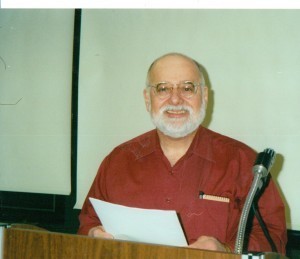 Salvatore Buttaci is a retired teacher and professor whose work has appeared in The Writer, The New York Times, The Christian Science Monitor, and elsewhere here and abroad. He was the 2007 recipient of the $500 Cyber-wit Poetry Award.
Salvatore Buttaci is a retired teacher and professor whose work has appeared in The Writer, The New York Times, The Christian Science Monitor, and elsewhere here and abroad. He was the 2007 recipient of the $500 Cyber-wit Poetry Award.
His collection of 164 short-fiction stories, Flashing My Shorts, published by All Things That Matter Press, is available now as an audio book at
His follow-up flash collection, 200 Shorts, is available at http://www.amazon.com/200-Shorts-ebook/dp/B004YWKI8O/ref=sr_1_2?s=books&ie=UTF8&qid=1369920397&sr=1-2&keywords=200+Shorts
Sal lives with his wife Sharon in West Virginia.
October 25, 2013
Close Your Eyes: Listen: No one is Fighting. No one is Yelling
 Close Your Eyes: Listen: No one is Fighting. No one is Yelling.
Close Your Eyes: Listen: No one is Fighting. No one is Yelling.
Author, Fran Lewis
Living in the real world you do know that there are many people who enjoy tormenting others just for the sake of being mean. Some prey on those that are smaller or weaker in strength and hoping they can demean them or make them feel worthless. Others might belittle someone for the way they dress, walk, talk or even walk down the street. These cruelties are not just distinctive of teens or young kids, adults are guilty too. In a world where violence seems to reign on the news, wars are front page and hate crimes make you wonder what this world has become bullying rears its ugly head in each of these cases. Whether it’s a brawl in a public place, a fight in the schoolyard or an argument over a parking space no matter how you turn it one person is trying to strong arm another and if the term fits use it.
Reading a newspaper or watching the news it’s not uncommon to hear about suicides related to teens being harassed online or in school. It is not uncommon to hear that the behaviors of your youth have become so bent in some cases, not all on hurting others that appear to be weaker, disabled in some respect or just not as physically able to defend themselves leaving them prey to gangs, attacks in the locker room and or verbal abuse. Many schools have prevention programs, but just how successful are these and why can’t we stop bullying from happening?
My name is Bertha and I am a teen that would love to create a world without wars, fighting, hate and bullying. But, I am not sure that will ever happen because violence seems to riddle our streets in most neighborhoods whether affluent or not. Walking in the lunchroom the other day I heard some kids talking about hurting poor Nat because he deserved it. Why? They disliked the way he talked and because he was a “nerd” and really smart he deserved to be punished. Anyone that does not conform to their gang mentality or belong in their group they feel does not deserve to breathe the same air as they do, even if you might say the air they breathe is tainted!
What would a world without bullying look like? Picture this: no physical, verbal or non-verbal threats. Imagine using the net for research, face booking your friends, homework, loading down novels and not using your computer to bully someone else to the point they might commit suicide. Each form of bullying is hurtful and the person or person’s delivering the abuse never show signs of remorse nor do they care about the end result. Wonder how they would feel if they were at the receiving end? It might be a great way to teach them a lesson in the long run if they are ever finally stopped. How about a bully lesson for the person bullying so they can see how it feels? Maybe they will understand if this is done in a professional setting.
Verbal abuse is what I was a victim of when people would say I am fat, ugly and had a big nose. At times they said I dressed like a huge polka dot and looked like a beached whale. I never let on that I was hurt and the ability to lose weight, which I did, stopped the fat jokes. Changing how I dressed was not because of what they said, but was my choice. You own who you are — not them.
Sometimes walking in the halls the mean girls or the popular ones would stare-down other girls in hope they would start to cry. They would say nothing but you got the point. Sometimes they would pretend to talk about you, laugh when you walk by and point fingers at you. The trick is to pretend you didn’t see it and not let on that they got to you. Harder than you might think! Harsh words, curse words, bumping into you in the hall, writing nasty words on your locker are just part of what they are capable of doing.
Imagine a world where everyone said good morning. People complimented you on how you look and others tried to help you look better. Imagine a world with no bullying.
Walk in the halls, down the street and do not ignore what might be happening right in front of you. If you see someone in trouble do not just stand there do something. Bullies feel empowered when they have the support of others like them. If you are a friend is faced with this situation you can do a lot to help yourself or the person being bullied: You can talk to the person and make sure that person is not hurt, and if they need help. Find an adult to help and even tell the bully to get away from the person and leave them alone. Students trained in peer mediation in a school with this type of intervention program are most helpful. Find a teacher, principal or guidance counselor. Call the office for help on your cell phone. The bully does not need to know you are the one who reported them.
From the violence of video games to the programs on television that most kids watch we all need to work together to stop what so many have put in place. There are tons of resources out there. Some states have anti-bullying laws. All schools should have programs that are in place and teachers, parents and even students should understand they are mandated to report it. Schools have to do more to make it safe for kids to go to school. Guards have to assist teachers when things get out of hand. Posters, kids working together, community leaders, thinking positively and teaching kids how to interact in a positive way are just some ways we might actually succeed in creating a world where kids and adults get along.
Close your eyes: Listen: No one is fighting. No one is yelling. No one is screaming. The games kids play the music they listen to and the friends they keep: wouldn’t it be nice if everyone got along doing these same things we used to do as kids.
Bullying: Let’s try to make it a thing of the past and not the present. My name is Bertha and I have formed a peer intervention group in my school along with my sister Tillie.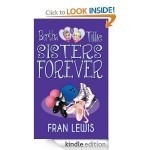 Read Bertha and Tillie Sisters Forever: Bertha Fights Back to find out just how I did it!
Read Bertha and Tillie Sisters Forever: Bertha Fights Back to find out just how I did it!
October 13, 2013
I DARE YOU TO STOP ME: THE CHALLENGE IS ON!
 I am the voice of Alzheimer’s and let me tell you this. My boundaries are Limitless. I can strike anyone at any time. I am not partial to race, creed or gender. I travel all over the world. I live in the minds of people in every city, town, village, state, country and continent in the entire world. If I could invade space, I would.
I am the voice of Alzheimer’s and let me tell you this. My boundaries are Limitless. I can strike anyone at any time. I am not partial to race, creed or gender. I travel all over the world. I live in the minds of people in every city, town, village, state, country and continent in the entire world. If I could invade space, I would.
My goal, unless you stop me is to take over and rule as many minds as possible increasing the need for more nursing homes, home health aides and draining Medicare and Medicaid services. I hope to use up all of their resources unless you stop FIND A CURE and me!
I challenge you all of you researchers and doctors to find a cure and stop me from spreading.
Before It took her away: My Mom
Imagine a flame that engulfs and envelopes a building so fast that there is nothing left but burnt ash within seconds of the fire starting. Imagine a wild fire moving so rapidly an entire forest or national park is destroyed. Imagine a tornado that brings down an entire community leveling it the ground. Imagine one day looking in the mirror and the next having no idea who you are! Imagine your brain sharp, alert and right on target slowly withering away being eaten away by plague and your sense of who you are and where diminishing. Imagine one day saying goodbye to yourself even though you are still here.
Alzheimer’s knows no bounds. Alzheimer’s does not discriminate it just destroys. The realization that your mind is going, your senses diminishing and your ability to be whom you are taken away, is more than frightening. When this disease makes its first appearance some feel that they are just forgetful and need to create lists in order to remember and do simple tasks. Forgetting where you put your keys and remembering where they are a few minutes later is no big deal. Walking out of your house and not remembering where you are going and how you will get home, alarming. What do you do when you are no longer in control of who you are, what you can do and how you are going to live out your years? This disease has a serious mind of its own and it affects not only the person diagnosed with it but the family too. Many families are faced with making some hard and fast decisions about how to care for the person who has Alzheimer’s every day. Do you wait until they really need help to find another place for that person? Do you get some kind of help at home? Are you willing to make the sacrifice and take care of this person making sure he/she receives quality care that you have to monitor every day? Are you willing to change your lifestyle and realize that your freedom to do many things will be curtailed? Then years ago I made that decision to care for my mom and I have never looked back. How do you face saying no to the one person who made your life so right? How do you cast aside all that was done for you by this person and decide to leave it to others to care for her? This was the hardest decision I ever had to make. Teaching reading and writing as a staff developer was my passion and giving up required a great deal of thought. My sister worked for doctors and my brother for a business and both would not think of retiring or relocating to live near my mom. The decision was made in 2003 and I retired from the best job in the world: Teaching.
Realizing what it entailed to take care of my mom I became familiar with the health care system and dealt with homecare agencies. It took a long time to get the right aids in place and have the right agency behind me. It took even longer to get full Medicaid and it took every ounce of energy and all my strength and fortitude to make sure that no one took away what I worked so hard to get for my mom. Alzheimer’s took her life slowly and methodically. My family supported me to a point. My sister came every Thursday to spend time with my mom and bring some of the supplies that I needed. My brother came less often living quite a distance away yet calling her daily.
Alzheimer’s is deadly and no one knows who is next. Families need to realize that the caregiver is a person and needs time to regroup, reorganize and enjoy life. You get frustrated when others go away and you cannot. You get frustrated when others will not come for the holidays because they remember your mom the way she was even though she is still here. Despite the disease she knew who she was and who we were till the day she closed her eyes in front of me as if to say: No More!
Imagine being able to put out that flame before the forest is destroyed. Imagine being able to predict where and when a tornado will hit and saving lives before it’s too late. Imagine finding the cause of this deadly disease before it takes any more lives and find a cure. Imagine Life Without Alzheimer’s. Imagine every mind safe!
Fran Lewis
My parents: my mom before it was too late
Follow Fran Lewis and her work at:
www.gabina49@wordpress.com
https://www.facebook.com/fran.lewis1
September 28, 2013
THE MIDAS TOUCH
 By Anne Sweazy-Kulju
By Anne Sweazy-Kulju
Mark Cuban has the Midas touch. Almost every single business venture the man has anything to do with, turns to gold. Ah, but I did say “almost.” There was that one investment; it was a product introduced by a married couple on Cuban’s reality television show. It had won. This was a great product, according to Cuban. It had the financial backing of Cuban, himself, for golly sakes. So, probably no one was more surprised than Cuban was, when the company went belly-up.
Cuban wanted an autopsy of the failure. They learned the couple whose invention Cuban backed had ceased working almost immediately upon award of their manufacture contract. Marketing efforts like email campaigns died away; too expensive. They stopped buying vendor booths at trade shows; too much work. They almost never visited their own website to update or add news, there were no more YouTube videos, and their Facebook Fan Page went a’ glimmering. In a word, their participation in the success of their own product became… bupkiss. The rest, as they say, is history (you knew I had to get “history” in there somewhere; I write historical fiction for my living.)
My takeaway is this: I could have all the riches of Mark Cuban behind me, but if I am not willing to do the work, if I can’t be diligent and tenacious about my work ethic, and if I won’t keep my nose to the grindstone, I will fail. I believe this is a truism, no matter if I am talking of writing a novel, or of realizing some other lofty goal. It is why I have told my daughter, and told her often, that “everything worthwhile in life, is earned.” If I am not actively participating in the pursuit and success of my own dreams, all the money in the world—or in Mark Cuban’s bank account, won’t help me.
What is your takeaway?
_______________
If you agree with Anne, and Anatole France, that history books which have no lies are very dull, visit her website, read her free excerpts and original stories, and prepare to be sharply entertained: http://www.historical-horse-feathers.com
http://about.me/AnneSweazyKulju
http://www.Facebook.com/Anne.Kulju
http://www.Pinterest.com/AnneSweazyKulju
http://Twitter.com/AnneSweazyKulju
http://www.amazon.com/Anne-Sweazy-Kulju/e/B00BFLRLA0/
http://RedRoom.com/member/anne-sweazy-kulju
http://www.LinkedIn.com/pub/Anne-Sweazy-Kulju/55/695/121
http://www.GoodReads.com/author/show/6463048.Anne_Sweazy_Kulju
Cherrye S. Vasquez's Blog
- Cherrye S. Vasquez's profile
- 37 followers


